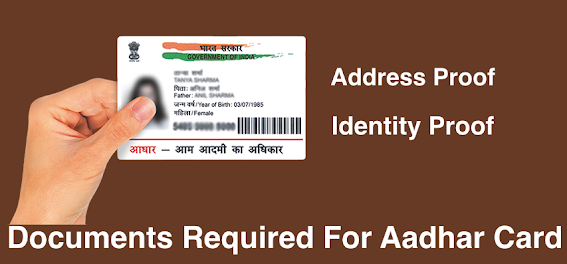How to get legal heir certificate
Legal Heir Certificate
In today's world, legal matters can often become complex and challenging, especially when it comes to matters of inheritance and property rights. When a loved one passes away, it becomes essential to establish the legal heirs to ensure a smooth transfer of assets and to avoid any disputes among family members. This is where a Legal Heir Certificate plays a crucial role. In this article, we will explore what a Legal Heir Certificate is, its significance, the application process, and the benefits it provides.
1. Introduction
A Legal Heir Certificate is a document issued by the government that establishes the relationship
between the deceased person and their legal heirs. It serves as proof of inheritance and helps in identifying the rightful successors. This certificate holds legal validity and is necessary in cases where property, assets, or other rights need to be transferred to the legal heirs.
2. Eligibility Criteria
To apply for a Legal Heir Certificate, certain eligibility criteria must be met. Generally, the following individuals can apply:
Spouse of the deceased
Children of the deceased
Parents of the deceased
Siblings of the deceased
Apart from the eligibility criteria, specific documents are required to support the application, including:
Death certificate of the deceased
Proof of relationship with the deceased (such as birth certificates, marriage certificates, etc.)
Identification documents of the applicant (Aadhaar card, PAN card, etc.)
Address proof of the applicant
3. Application Process
Applying for a Legal Heir Certificate involves several steps. Here is a step-by-step guide to help you through the process:
Collect the required documents mentioned earlier.
Visit the local revenue office or the concerned authority responsible for issuing the certificate.
Obtain the application form for the Legal Heir Certificate.
Fill out the form with accurate details, ensuring all necessary information is provided.
Attach the supporting documents along with the application form.
Submit the completed application form and documents to the designated authority.
Pay the prescribed processing fees, if applicable.
Obtain an acknowledgement receipt for your application.
The processing time may vary depending on the government authorities and the complexity of the case. It is advisable to follow up regularly on the status of your application.
4. Role of Government Authorities
The responsibility of issuing the Legal Heir Certificate lies with the government authorities, typically the revenue department or the local municipal office. These authorities review the application, verify the provided documents, and conduct any necessary investigations to ensure the legitimacy of the claim. Once all the formalities are completed, the certificate is issued to the eligible individuals.
It is important to note that the processing fees may vary from one jurisdiction to another. The fees are typically nominal and are intended to cover administrative costs.
5. Benefits of Obtaining a Legal Heir Certificate
Obtaining a Legal Heir Certificate offers several benefits. Some of them include:
Legal Validity: The certificate holds legal validity and serves as official proof of inheritance and succession rights.
Property and Asset Transfer: The certificate facilitates the smooth transfer of properties, assets, bank accounts, and other rights to the legal heirs.
Insurance Claims: In cases where the deceased had insurance policies, the Legal Heir Certificate becomes essential for the settlement of claims.
Government Benefits: The certificate may be required to claim various government benefits, such as pensions, provident fund, or social security schemes.
Having a Legal Heir Certificate can significantly simplify the legal procedures involved in transferring assets and claiming rights after the demise of a family member.
6. Frequently Asked Questions (FAQs)
Q: What is the difference between a Legal Heir Certificate and a Succession Certificate?
A: A Legal Heir Certificate establishes the relationship between the deceased person and their legal heirs, while a Succession Certificate is a legal document that grants the right to inherit debts, securities, and other movable properties of the deceased.
Q: Can a Legal Heir Certificate be used to access bank accounts?
A: Yes, a Legal Heir Certificate can be used to access bank accounts and other financial assets of the deceased.
Q: How long does it take to obtain a Legal Heir Certificate?
A: The processing time can vary depending on the jurisdiction and the complexity of the case. It is advisable to inquire about the estimated timeline from the concerned government authority.
Q: Is it necessary to hire a lawyer for the application process?
A: While it is not mandatory, seeking legal advice can be beneficial to ensure a smooth application process and to address any complexities or legal issues that may arise.
Q: Can a Legal Heir Certificate be obtained for a deceased person who had no assets?
A: Yes, a Legal Heir Certificate can still be obtained even if the deceased person had no assets. It serves as proof of relationship and may be required for various legal and administrative purposes.
7. Conclusion
In conclusion, a Legal Heir Certificate is a vital document that establishes the legal heirs of a deceased individual and plays a crucial role in inheritance and property transfer. By obtaining this certificate, one can avoid potential disputes and ensure a smooth transition of assets and rights. The application process involves fulfilling the eligibility criteria, providing the necessary documents, and following the prescribed procedure. The certificate holds legal validity and provides several benefits, including easy access to assets, property transfer, and claiming insurance policies or government benefits. If you find yourself in a situation where you need to establish your rightful inheritance, obtaining a Legal Heir Certificate is a necessary step.



Comments
Post a Comment